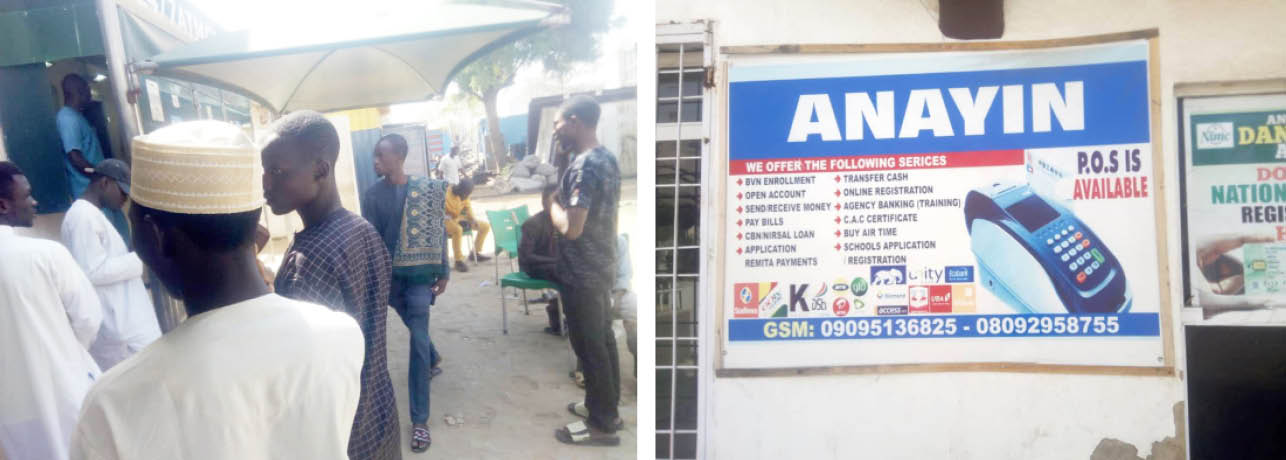Christmas and New Year celebrations that recently took the centre stage of socio-religious activities across the globe, including Nigeria, have come and gone with all the usual fanfare that characterise the season.
But it has not been the best of times for some celebrants who have been caught in the web of hardship that is usually the aftermath of reckless spending and razzmatazz during the festivities.
- INEC fixes Feb 26 for 6 by-elections, warns parties
- Jos murder: My daughter left home to return for Christmas but never made it – Mother
Usually, a lot of people engage in spending spree during the period, but when the celebrations are over, all the joy that come with them turn to sorrow for some people who emptied their pockets when they begin to face the consequences of extravagance.
While some people cry blue murder and blame themselves, others blame January as a month of hardship.
Then the thrilling and soothing “Jingle bells, jingle bells, jingle all the way” Christmas carol which often hits the airwaves from December 1 of every year to herald the season are forgotten in a hurry.
Daily Trust’s chats with celebrants in some parts of the country indicate that life has not really been easy for most of them.

Household items put on sale in Jos
In some parts of Jos, the capital of Plateau State, the crowds that used to throng most business centres before and during the festivities have thinned out. Even, the long queues at popular ATM terminals have drastically reduced.
Checks by our correspondent showed that the ATM terminal at a commercial bank near Sparkling Junction in Jos, where about 100 persons used to queue up to 50 to 70 metres away from the point, is almost empty these days.
The terminal is one of the busiest and most crowded ATM points in Jos. But when our correspondent visited, less than 20 persons were seen at the place.
Gas filling stations, as well as second hand clothe dealers, dining and wining outlets, suya and fish joints too which buzzed during the period are mostly deserted.
Mr Chidi who owns a barbing salon at Old Airport Junction, said, “Definitely, if there was reckless spending in December, there must be attendant hardship in January. This Old Airport Junction is the hub of business activities. A lot of buying and selling take place here, including eateries and sit-outs, both day and night. But since this January, the place has become scanty and it is not bubbling for now.”
Felicia, a business woman at Zarmaganda, said that businesses had been at a low ebb this January, especially because people did not have much reasons to buy new clothes because they had bought in December for celebration.
A meat seller on Wanna Road by Tudun Wada in Jos, Ashiru Isah, said, “Since January meat sales have not been moving as most people who patronise me have not been coming.
“Whenever I ask my customers why they have not been coming, they would complain about the January hardship. Although some of my customers who travelled for the celebration have not returned; probably due to economic hardship.”
A resident of Kufang in Jos, Isaac Abraham, said January had been tough but that he had been trying to cope.
Mohammed Abdullahi, a dealer in second hand products who has a shop near Masallacin Juma’a in Jos, said some people brought household products to him to buy to enable them survive the hardship.
He said, “Just before you came to my shop for your report someone who bought a mattress before Christmas brought it to me to buy to raise money and pay his children’s school fees.”
Short queues at ATMs in Uyo, Calabar
In Uyo, Akwa Ibom State, the crowd that used to throng banks during festivities has reduced and continues to reduce on daily basis.
While some shops and business premises have opened for businesses, some remain shut as if the holidays have not ended due to lack of patronage occasioned by hardship.
The lull that has shaped business activities does not exclude newspaper business as sales of newspapers have been on the decline since the end of the celebrations.
The immediate past Chairman of the Akwa Ibom State Newspaper Distributors Association of Nigeria (NDAN), Mr Essien Ewoh, lamented that business had been slow.
Mr Ewoh explained that sales were poor as many people now read newspapers online.
“Things are hard now. It is just like age. It goes up and does not come down. Sales are poor. People are no more interested in buying newspapers because they now read online.
“If you see a car stop by our office for a newspaper, they are either asking for Sporting Link or any other sports paper which sell for only N100.
Another resident of Uyo, Mr Tony Akra, said, “Things were hard even before the festivities, and have remained hard after. But what can we do? We cannot kill ourselves. We will just take life as it comes and one at a time.”
Before the Christmas and New Year festivities, long queues at ATM points had characterised the city centres, but they have almost disappeared in Calabar and few other big towns in Cross River State.
Residents had thronged the pay points to either withdraw or transfer money to their loved ones to enable them celebrate during the season.
A civil servant who is also a Christian leader, Amos Akpan, said, “January always seemed to be too long before salary day.
“For now, my four children and I depend on my wife who runs a small sewing shop in town. For school fees, I will have to plead with the proprietor for understanding till end of the month,” he said.
January biting hard in Makurdi
Tina Nyiyongo (26), an office assistant in Makurdi, disclosed that life in the New Year after the festivities had not been easy as it seemed to her that she was beginning the year all over.
“We’re (my family of three) starting from the beginning again. I don’t even have anything to sell to cushion the effects of hardship, but will wait for January salary.
For Peter Wende, a civil servant, the major challenge after the festivities is children’s school fees since salaries would not be paid until the end of January.
“But there is nothing I can do, but to wait until the situation normalises before they (children) could go to school. For me that have four of them in school, even my one month salary can’t take care of the fees,” he said.
Abdullahi Sule, a dealer in second hand electronics told our correspondent that in January he would be expecting to buy used household stuff from those who have landed themselves in hardship a couple of days after Christmas and New Year due to reckless spending.
Sule who buys and disposes used electronics at the Wadata area of Makurdi, said broke people, especially those who wanted to send their children back to school in January would begin to show up with some of their household items at his shop in the second week of the new year after they had exhausted avenues to raise money for the fees.
At High Level area in Makurdi, the long queues at ATM points that characterised the festivities have reduced drastically as few customers now walk in and out of the boots in less than five minutes.
Life tough in Lagos
Lagosians, too, are facing the realities of the harsh economy. In chats with people in some parts of the state, our correspondent gathered that a lot of them are broke so much that the long queues in banks, especially the ATM points before Christmas and New Year suddenly disappeared after the celebrations.
We also gathered that some people that spent lavishly are now struggling to raise money to pay their children and wards’ school fees, house rent and to buy food stuff for their families.
Mrs Charity Mba, who works with a media organization, lamented that because prices of items had gone up, her spending also went up higher above her budget and plans.
“Right now, it is not easy for me to cope as inflated prices of items are taking a toll on me. I have a lot of bills to settle.
But I just have to cut down on my expenses to be able to meet up with other necessary needs. As a salary earner, I have to spend less now, since January looks longer than 31 days. I have also learnt my lessons on how to curtail my spending during festive seasons,” she said.
Mr Aderemi Ojo, a father of four, who works with a financial institution in Lagos, said life had been very tough because he spent so much on food as gift items to friends, relatives and the less privileged.
“In this month of January, paying school fees and meeting daily needs have become a challenge. School fees is also unnecessary high. House rent is another big challenge. The hike in electricity bill as well as the cost of gas and is biting.
“Some of us have to survive on salary advance to fuel our cars and cater for the family. In fact, January is very long. It is like 60 days.”
Dickson S. Adama (Jos), Iniabasi Umo (Uyo), Eyo Charles (Calabar), Hope Abah (Makurdi) & Christian T. Alabi (Lagos)

 Join Daily Trust WhatsApp Community For Quick Access To News and Happenings Around You.
Join Daily Trust WhatsApp Community For Quick Access To News and Happenings Around You.


